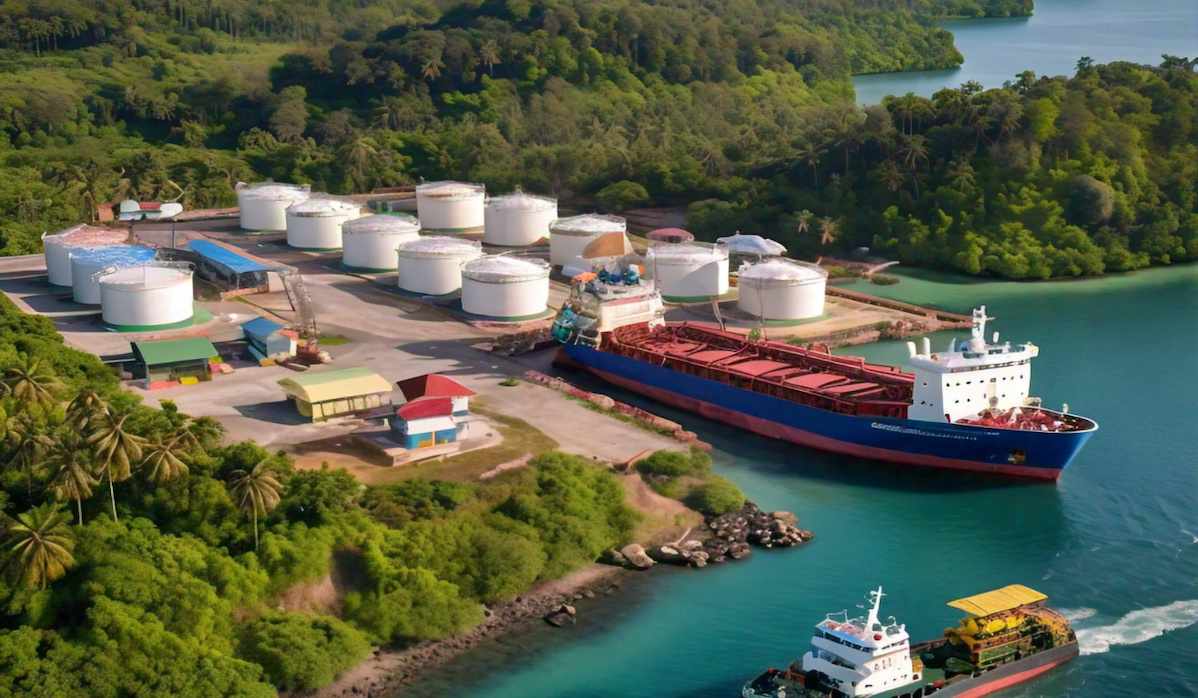Tarun Karthick
Sri Vijaya Puram, 22 October 2024
In the Andaman and Nicobar Islands, the routine life of citizens is often disrupted by a crisis in the supply of essential commodities. Particularly acute in the Nicobar Group of Islands, residents frequently face shortages of fuel, cooking gas, and basic food items such as potatoes, onions and tomatoes.
While the recurring shortages are typically attributed to an inadequate number of ships for timely transportation, the underlying issue runs deeper. The real challenge lies in a lack of effective planning and a reactive approach that only kicks in when the situation becomes dire, often spurred by administrative pressure or public protests.
The administration’s attempts to implement solutions that have succeeded in mainland India are falling short in the unique context of these isolated islands. What works on the mainland is not necessarily applicable to the Andaman and Nicobar Islands, which require tailored strategies that address specific logistical challenges.
The distribution of Liquefied Petroleum Gas (LPG) cylinders, in particular, illustrates the flaws in the current system. Despite efforts by Indian Oil Corporation Limited (IOCL) over the past decade to improve distribution by appointing new suppliers, the issue persists in many remote areas.
Before 2003, LPG needs for the islands were met solely through transportation from Chennai and Kolkata. The commissioning of an LPG bottling plant at Hope Town in February 2003 alleviated some supply issues in South Andaman and surrounding islands, but significant challenges remain.
Addressing the supply crisis requires immediate action to establish bulk LPG storage facilities and small bottling plants on each remote island, as transportation of LPG cylinders has consistently proven to be a challenge, leading to unreliable supply. Bulk LPG carriers can easily replenish supplies to each island based on consumption data, with fixed schedules for replenishment tailored to meet demand. These measures are essential, especially as the Government of India conceives mega projects like the Great Nicobar Project, which is expected to significantly increase the islands’ population. While these initiatives are crucial to meet the immediate needs of the islands, the best long-term solution would be to invest in piped gas supply infrastructure, ensuring a steady and sustainable supply for residents.
For the transportation of petrol and diesel, the creation of safe and secure storage facilities on each remote island is essential. Simply refilling petrol station tanks will not suffice; additional storage must be built and regularly replenished according to a fixed schedule to prevent shortages.
Moreover, to support local businesses, cold storage facilities should be developed, and made available at affordable rates for perishable goods.
The entrepreneurial spirit of the island youth can be harnessed to tackle these problems, provided the government allocates adequate funding and relaxes regulations governing the trade and storage of fuels and commodities. While the solutions are within reach, they require concerted effort and a commitment to innovative, island-specific strategies.

